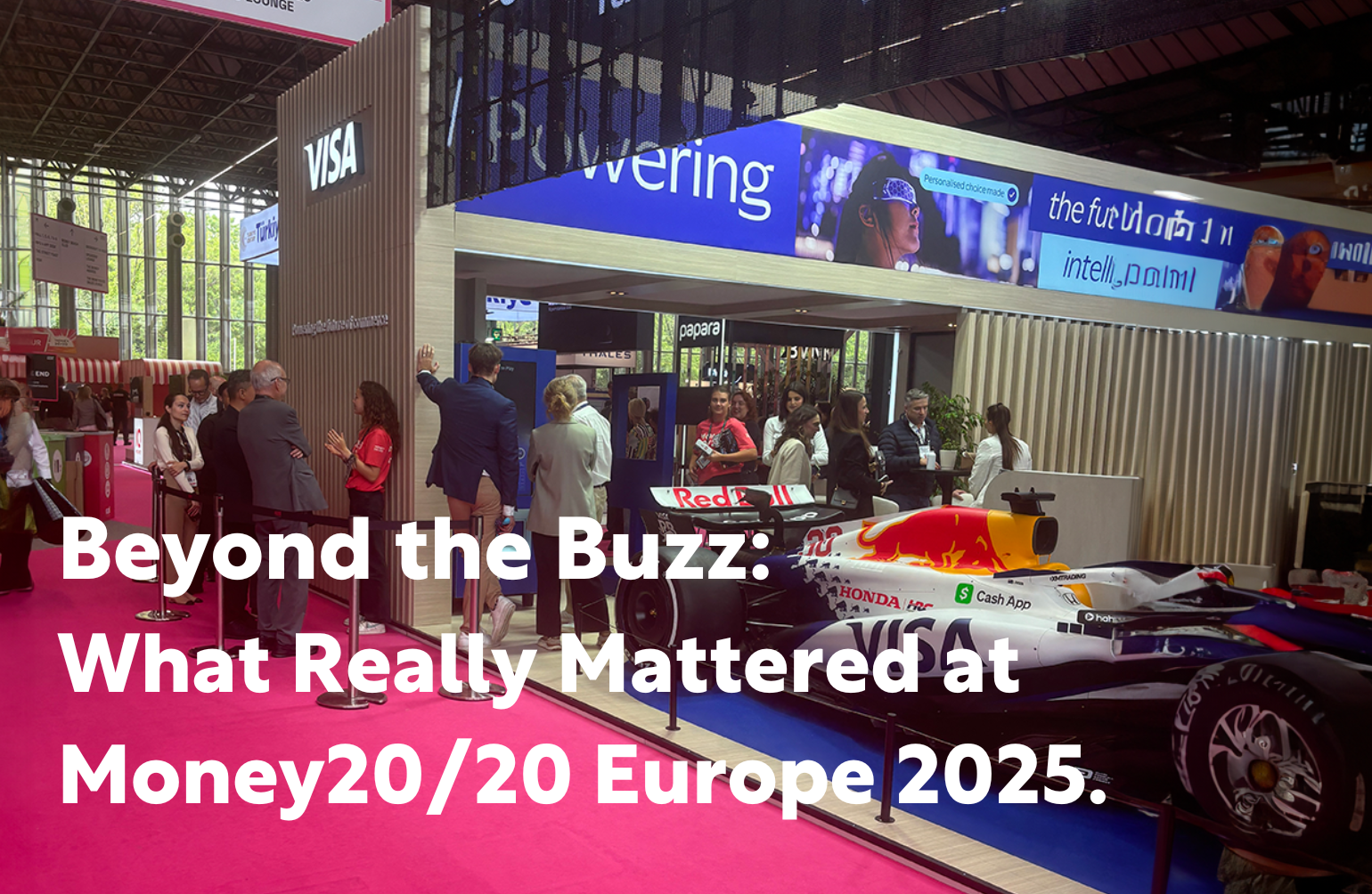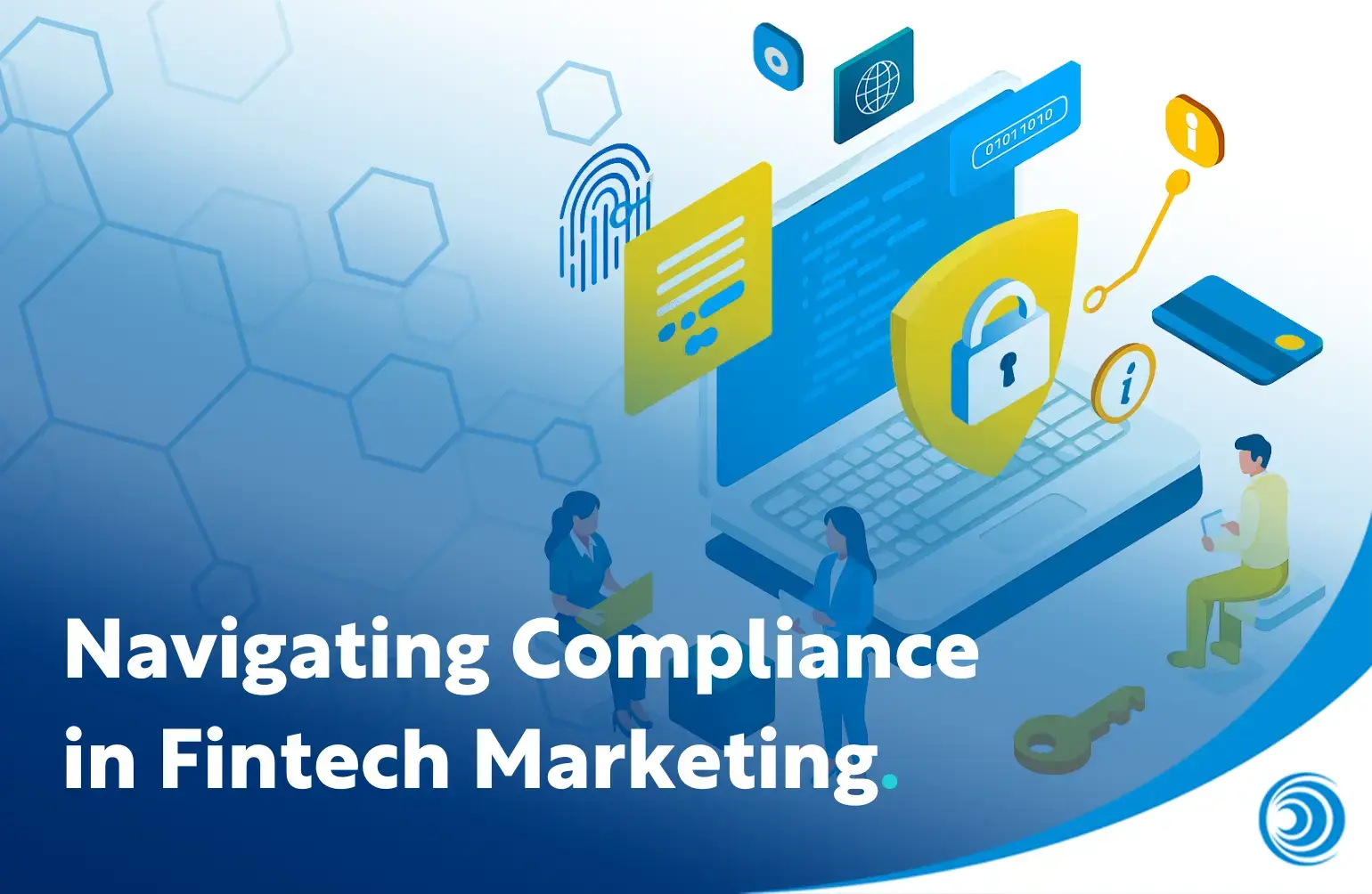
Beyond the Buzz: What Really Mattered at Money20/20 Europe 2025
If Amsterdam felt a little more electric last month, it’s because 8,000+ fintech fanatics descended on the RAI for Money20/20 Europe 2025.
We weren’t just there to observe – we were on the ground to decode the noise, sharpen the signal, and bring a marketing lens to the biggest trends shaping fintech. From brand storytelling to strategic positioning, we saw firsthand how the most impactful players aren’t just building tech – they’re building trust, narrative, and relevance.
We came. We saw. We asked the tough questions. Here’s what mattered.
Stablecoins Have Entered Their (Useful) Era
Forget Bitcoin hype. This year, it was all about infrastructure, not investment. In “The Future of Digital Money: Who Wins?”, the panel made one thing clear: the real race is in faster, smarter, more useful global payments – built on stablecoin rails.
Maya Caddle, Payments Lead at Solana, broke stablecoins down into three layers: Treasury, Settlement, and Pay-In/Payout – a framework that made the topic digestible. Patrick cut to the chase: “The winner is the entity that can combine the solution in the best way for specific use cases.” And no, that doesn’t automatically mean Visa or Mastercard. Right now, they’re still only settling with merchants once a day. Not exactly instant.
Julian Sawyer, CEO of Zodia Custody, mapped the shift clearly: “The first generation of stable coin was to facilitate trading. The second generation will see specific use cases, such as large corporations, using stablecoin for remittance purposes.”
Stablecoin is finally getting stable.
The Digital Identity Wallet is Real – And It’s (Almost) Here
No, this isn’t an EU fever dream. According to the “Is the EU DI Wallet a Game-Changer for Payments in Europe?” session, the project is alive, on track, and due to roll out on the December 24, 2026 – a festive gift for policymakers across Europe.
Marie Austenaa, Head of Digital Identity at Visa, called it “a platform for interoperable transactions across Europe” – one that could ignite a more seamless future for both identity and payments. But this isn’t just a tech upgrade. It’s a policy shift. And a bold one.
David Magard, Coordinator EWC at Swedish Companies Registration Office, flagged that adoption could be slow, but the upside? Government-authenticated identities could make fraud a whole lot harder.
The biggest challenge now? Merging identity with payments. The tech’s ready. The trust might take longer.
Marketing Needs a ReThink
The marketing session, “Fintech Marketing: The CMO’s Guide to Genuine Traction”, with Rory O’Neil, CMO at Checkout.com, and Yewande Akomolafe-Kalu, AVP Branding & Storytelling at Flutterwave, delivered a refreshing dose of honesty – and a call to action for fintech brands stuck in the cycle of buzzwords and bland messaging.
“Let’s be honest – there’s not much differentiation between tech companies these days. The thing to do is focus on relative differentiation – decide what one thing you want to be known for in the long term, and agree that with the C-suite. Drive that message through everything you do.”
In other words: less noise, more meaning. The age of hollow taglines and buzzword soup is over.
Yewande brought a different, but equally important perspective: “Regulations and compliance are there to protect customers, so we need to respect that and factor it into our marketing planning. We’ve bought the compliance team into our campaign ideation – and that’s been a great way to avoid problems further down the line.”
It was a session that cut through the white noise with real talk: if you want to stand out, start speaking like your customers do, bring your risk teams into the creative process, and above all – build a message that matters.
Lego, F1, and Going ‘Glocal’
Some booths went big – Visa brought F1 into the mix, gamifying their stand with a racing challenge that had queues snaking around the corner. Others went clever: Papara blended physical cash with QR codes in a digital/physical hybrid that made sense (yes, it can be done!).
And special mention to whoever was handing out Lego – grown adults were wandering the halls clutching them like emotional support bricks. Pure genius!
But beyond the swag and spectacle, there was a bigger theme humming in the background: glocalisation. Despite Money20/20’s huge international footprint, the spotlight kept circling back to local expertise in a global context. From regional showcases on the exhibition floor to putting homegrown fintechs front and centre, it’s clear: being everywhere doesn’t mean forgetting where you came from.
ESG: Not Just a Checkbox
Sustainability took the spotlight in the thought-provoking session “Sustainability in Payments”, proving it’s no longer just a marketing add-on – it’s a competitive advantage.
Victory Jory’s, Strategic Engagement Lead at The Alliance for Innovative Regulation, and Charlie Bronks’, Group Head of Sustainability at Crown Agents Bank, discussion went beyond carbon credits and green claims, diving into how fintechs can embed ESG into their core strategy and benefit from it.
Fintechs that take sustainability seriously aren’t just ticking boxes – they’re building trust, brand relevance, and long-term value. Doing good is good for business.
Final Thoughts: Ditch the Buzzwords, Keep the Momentum
Money20/20 Europe 2025 didn’t just serve up hype – it gave us substance. Across stages and stands, the industry showed it’s finally ready for the grown-up conversations: what’s broken, what’s promising, and what’s just noise.
From stablecoins stepping into practical territory, to the promise of a pan-European digital identity wallet, to marketing teams rethinking their message (and finally talking like humans), this year felt like a turning point.
The takeaway? Clarity wins. Whether it’s in your tech, your compliance, or your branding, ditch the vague taglines and double down on the real value.
See you next year in Amsterdam. Bring you’re a-game. Leave the buzzwords at home.



